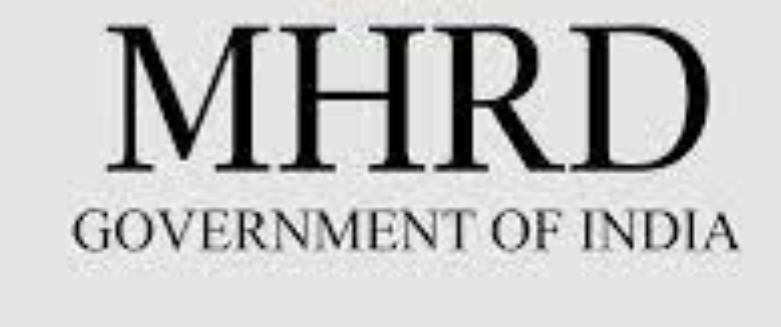Ministry of Human Resource and Development
The Ministry of Human Resource Development (MHRD) was a government ministry of the Republic of India, responsible for the development of human resources in the country. It was formed on September 26, 1985, through the 174th amendment to the Government of India (Allocation of Business) Rules, 1961. The ministry was renamed as the Ministry of Education on August 26, 2020, as part of the National Education Policy 2020.
The ministry was primarily responsible for the formulation and implementation of policies and programs related to education, literacy, and skill development in India. It also oversaw the functioning of various autonomous organizations and institutions in the field of education and research.
History
The Ministry of Human Resource Development was established in 1985 by combining the Department of Education and the Department of Culture, which were previously part of the Ministry of Education and Culture. The ministry was created with the objective of developing human resources in the country through education and skill development.
Over the years, the ministry has played a crucial role in the formulation and implementation of several important education policies and programs, such as the National Policy on Education (1986 and 1992), the Sarva Shiksha Abhiyan (2001), and the Right to Education Act (2009).
Organizational Structure
The Ministry of Human Resource Development was headed by a Cabinet Minister, who was assisted by two Ministers of State. The ministry had two departments:
- Department of School Education and Literacy
- Department of Higher Education
The Department of School Education and Literacy was responsible for the development and implementation of policies and programs related to school education, adult education, and literacy. It also oversaw the functioning of various autonomous organizations, such as the National Council of Educational Research and Training (NCERT) and the Kendriya Vidyalaya Sangathan (KVS).
The Department of Higher Education was responsible for the development and implementation of policies and programs related to higher education and research. It also oversaw the functioning of various autonomous organizations, such as the University Grants Commission (UGC), the All India Council for Technical Education (AICTE), and the Indian Institutes of Technology (IITs).
Key Initiatives and Programs
The Ministry of Human Resource Development has launched several initiatives and programs over the years to promote education and skill development in India. Some of the key initiatives and programs include:
- Sarva Shiksha Abhiyan (SSA): A flagship program launched in 2001 to achieve universal elementary education in the country.
- Mid-Day Meal Scheme: A program launched in 1995 to provide nutritious meals to children in government and government-aided schools.
- Rashtriya Madhyamik Shiksha Abhiyan (RMSA): A program launched in 2009 to enhance access to secondary education and improve its quality.
- Rashtriya Uchchatar Shiksha Abhiyan (RUSA): A program launched in 2013 to provide strategic funding to higher education institutions and improve their quality and capacity.
- National Skill Development Mission: A mission launched in 2015 to provide a strong institutional framework for skill development in the country.
- Study Webs of Active-Learning for Young Aspiring Minds (SWAYAM): A program launched in 2017 to provide online courses and certifications in various subjects and disciplines.
Challenges and Way Forward
Despite the various initiatives and programs launched by the Ministry of Human Resource Development, the education sector in India continues to face several challenges. To address these challenges, the ministry has taken several steps in recent years, such as increasing the budget allocation for education, launching the National Education Policy 2020, and promoting digital education and skill development.
The National Education Policy 2020, which was launched by the Ministry of Human Resource Development (now the Ministry of Education) in July 2020, is a comprehensive framework for the development of education in India. The policy aims to transform the education system in the country by 2040 and achieve the following key objectives:
- Universalization of education from pre-school to secondary level
- Attaining a Gross Enrollment Ratio of 50% in higher education by 2035
- Emphasizing on skill development and vocational education
- Promoting multilingualism and Indian languages in education
- Encouraging the use of technology in teaching and learning
- Fostering research and innovation in higher education institutions
The Ministry of Human Resource Development (now the Ministry of Education) has played a crucial role in the development of human resources in India through education and skill development. Over the years, the ministry has launched several initiatives and programs to promote access to quality education and improve the employability of the workforce.


